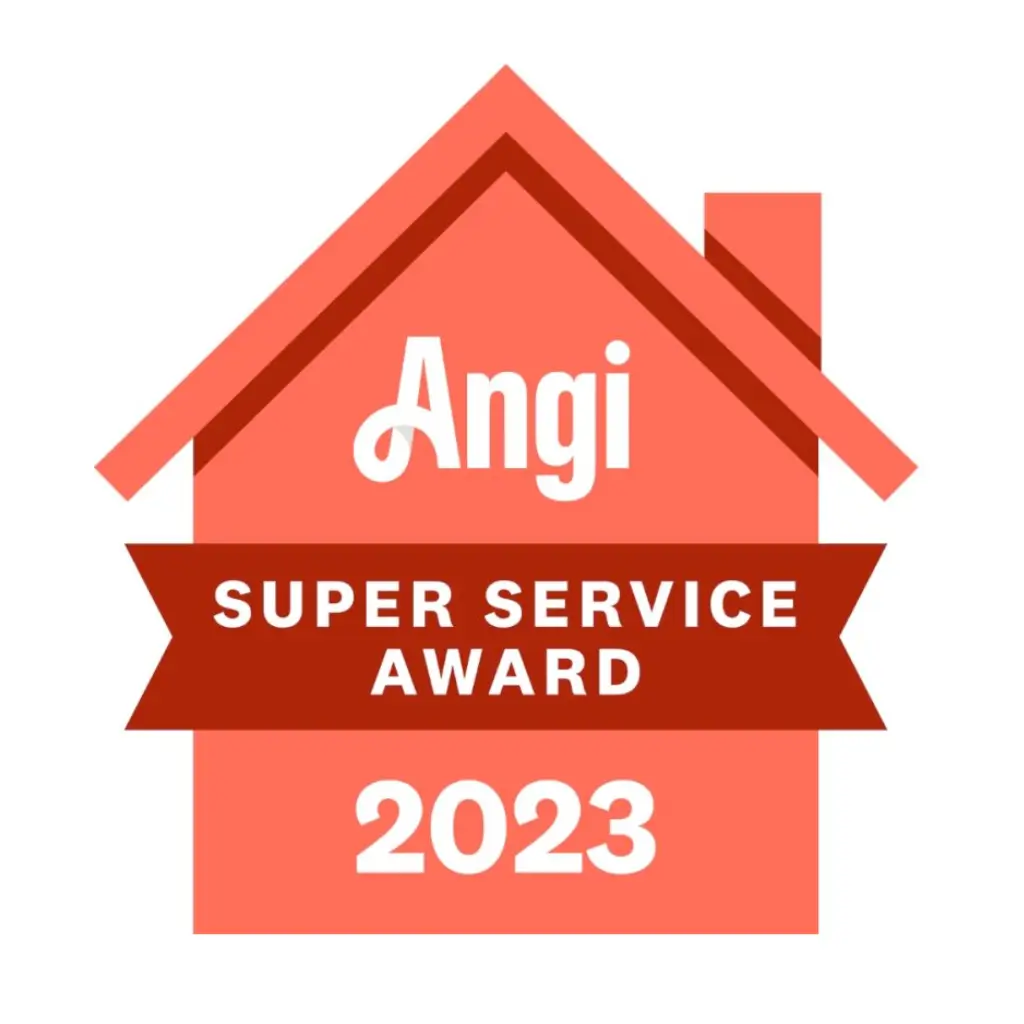Air conditioners are powered by electricity and use refrigerants to cool air. They have become an essential appliance for keeping homes cool during hot summer months since ACs were first invented in 1902. Knowing when to service, repair, or replace your home’s air conditioning unit is key to ensuring it runs efficiently and lasts as long as possible.
This guide covers everything homeowners need to know about the average lifespan of different types of air conditioners, signs that your AC may need replacing, tips to extend its lifespan, and when to call in an HVAC professional. Having this background will help you maximize savings and keep your home comfortable.
How long do home air conditioning units last?
The average lifespan of most air conditioning units falls between 10 and 15 years. However, this can vary based on the type of AC system and how well it’s maintained.
Window Air Conditioners
Window AC units tend to have the shortest lifespan, around 5-10 years. Their lifespan is reduced because they endure more wear and tear from exposure to outdoor elements. Lack of proper filtration also causes faster breakdowns.
Central Air Units
Traditional central air conditioning systems have an average operating lifespan of 10-15 years with proper maintenance. Units that use high-quality compressors and coils can sometimes last over 15 years. Annual maintenance and timely repairs can extend a central AC system’s lifespan.
Ductless Mini Split Units
Ductless mini-split ACs often have a life expectancy of over 15 years due to advanced inverter technology. Their lifespan exceeds window units and matches most central air systems. Their durability comes from protected outdoor units and flexibility to condition single rooms versus whole homes.
6 Signs Your AC Needs Replacing
While manufacturers print average lifespan estimates, a unit’s actual longevity depends largely on maintenance and usage. Here are six clear signals from your AC itself that replacement should be on your mind:
1. Loss of Cooling Capacity
If your AC cannot keep rooms as cool as it used to, even when well-maintained, its cooling capacity is diminishing. This is the primary reason for replacing air conditioners after about ten years.
2. Frequent Repairs & Breakdowns
If you are repeatedly repairing your AC and it requires fixing 3-4 times per year, replacement is likely the wiser option over more service calls.
3. High Energy Bills
Inefficient units with worn-out compressors require much more energy to generate cool air, driving your utility bills up. Swapping out the AC can yield significant efficiency savings.
4. Bothersome Noises & Smells
Clunking, buzzing, or loud noises point to internal failures. Burning smells may indicate dangerous electrical issues. These warning signs mean replacement should happen ASAP.
5. Water Leaks
Water leaking from your AC system encourages electrical hazards. Attempting repairs on an older leaky unit is typically unwise.
6. Age Over 10-15 Years
Air conditioners at or exceeding average life expectancy estimates often exhibit many of the above replacement warning signs. Remember to factor in age when diagnosing operational issues.
Tips to Increase Your AC’s Lifespan
You can potentially extend your air conditioning unit’s working life beyond averages through preventative maintenance:
Have an Annual Tune-Up
Scheduling an annual tune-up of your air conditioner with an HVAC professional is highly recommended to keep the system operating efficiently. Technicians inspect for refrigerant leaks, measure output temperatures and pressures, tighten connections, clear drain lines, test controls and safety switches, and may even clean coils and fan blades. They can spot minor problems like low refrigerant before they cause serious damage—schedule tune-ups when cooling seasons begin to optimize the AC for peak conditions ahead.
Change Filters Regularly
Air conditioners pull tons of air across filters as they circulate cool air. Over time, filters inevitably capture dust, dirt, pet hair, and other contaminants. Highly restricted airflow strains the AC blower motor and compressor while limiting your home’s overall cooling. Most HVAC experts recommend replacing disposable fiberglass air filters monthly. Reusable filters can be washed with water rather than replaced, but they must be examined at least monthly as well. Mark your calendars with filter change reminders.
Clear Debris & Plants
Outdoor AC condenser units have coils, fins, and openings for essential airflow to carry away heat. When plants encroach too close or debris builds upon coils, normal airflow decreases. Have a minimum 2-foot clearance zone around outdoor units. Carefully hose off loose dirt, but call professionals for deep coil cleanings. Never poke fins or coils, which easily bend and restrict vital airflow. Keep nearby trees and bushes trimmed back as well.
Install a Smart Thermostat
Unlike outdated manual thermostats, programmable and smart WiFi-enabled thermostat models regulate temperatures more efficiently. You can customize cooling schedules for when rooms or buildings are occupied versus vacant. Smart thermostats actually learn usage patterns and adapt to save maximum energy automatically. Either model avoids cooling over-conditioned empty rooms, which reduces wear on HVAC systems.
Upgrade Ductwork
Central air conditioners rely on ductwork to circulate cooled air. Unfortunately, aging ducts often develop leaks or lose insulation value. Professionals can use multiple methods to test ductwork quality, including digital scans, to uncover hidden duct issues. Repairing substantial duct leaks and insulation gaps can help struggling AC units regain lost cooling capacity rather than forcing replacement. Just be sure to match duct improvements with complementary AC maintenance.
Call an HVAC Pro for Troubleshooting & Replacements
HVAC technicians have the skills, tools, and experience to accurately diagnose problems and recommend keeping obsolete units running or investing in a new air conditioner. They handle the safe removal of old ACs and expert installation of replacements. Rely on their inspections of your cooling system’s age, condition, and repair history to decide whether replacement or maintenance makes sense.
The Logan Difference
Logan Servuces is a family-owned and operated heating and cooling company that has been serving our community since 1969. What sets Logan apart is our commitment to providing customers with the highest quality equipment installations and exceptional service.
All of our installers complete extensive training programs, so you can trust our team is well-versed in all major HVAC brands and models that we offer. We care deeply about attention to detail and making sure every customer’s installation meets our high-quality standards. Before arriving for an appointment, we ensure our technicians have all the necessary parts on their truck to avoid any delays or frustration.
Communication is key – we walk customers through what to expect during the installation and provide guidance on how to properly operate new HVAC systems. Our experienced install managers inspect all completed jobs and have customers sign off that they are 100% satisfied.
Giving back to our community through donations, partnerships, and special offers is extremely important to us. Our family-owned and operated company started this business over 50 years ago, and maintaining our good reputation through quality service and caring about our customers has always been our top priority. That commitment to excellent service is the Logan Difference.
Frequently Asked Questions (FAQs)
How do I know exactly when I should replace my AC?
There is no definitive replacement timeframe that applies to all air conditioners. The clearest times to swap out your AC are when cooling output cannot keep pace with summer heat, efficiency, and energy bills worsen despite repairs or when breakdowns become extremely frequent. Lifespan estimates serve as a general guide.
Should I repair or replace my AC if it stops working?
As traditional central air conditioning systems age past ten years old, parts warranties have likely expired and the repair costs typically exceed $500 while providing only temporary relief before the next breakdown. Compare this expense to replacing the central air conditioner for hopefully 10-15+ more years of reliable operation. AC replacement often makes more sense, as it includes warranties and modern efficiency gains that repay the upfront cost of over 5-7 years of utility savings.
Is it worth it to replace an old AC before it breaks?
Proactive planned AC replacement avoids getting stuck with no cooling during hot weather. It also sidesteps rising repair bills that accumulate with an antiquated unit. Finally, upgrading to a new energy-efficient model aligns with seasonal deals and rebates. Weigh the estimated remaining years left with whether utility rebates make replacement deals worthwhile now.



















